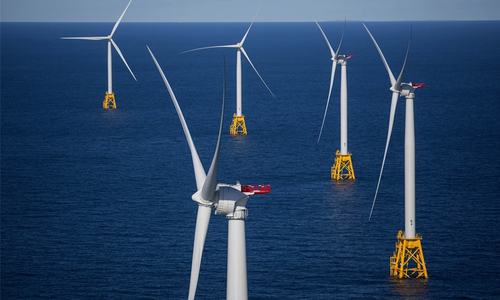KARACHI: Investors in the Jhimpir Wind Corridor are alarmed as their projects have now suffered an unprecedented shutdown of six consecutive days since the federal government halted all offtake from their wind farms.
“We had been seeing depressed offtake for almost two months now,” a leading investor in the project who did not wish to be identified by name tells Dawn. He says they saw between zero and 10MW evacuated on certain days over the last few months.
“But now the situation has turned alarming since we have seen six days with no offtake. Our turbines are standing idle while the government tells us that there is not enough power demand in the country.”
The Jhimpir Wind Corridor has total installed capacity of 980MW. Three plants in Gharo, adjacent to Jhimpir but closer to the coastline, are seeing continuing offtake because the K-Electric is continuing its purchases of renewable energy. All those that sell to the Central Power Purchasing Agency (CPPA) have been curtailed to zero, says Danish Iqbal, chairman Pakistan Wind Energy Association that represents investors’ interests in the corridor.
Meanwhile, another investor says the government is continuing to buy power from coal and regasified liquefied natural gas plants, and laments that these are pollution intensive options as well as reliant on imported fuels. Power ministry officials, for their part, have told the investors that thermal plants are superior options because they are closer to load centres in Punjab and a safer option for system stability.
Close to 980MW of renewable energy capacity idled as demand collapses
Renewable power plants have no capacity payments in their Power Purchase Agreements, so curtailment of power evacuation for them means no revenue. “We already have the circular debt as a problem that we are dealing with, now we don’t even have enough to invoice the government to meet our upcoming debt service payments, which were predicated on power offtake,” one investor tells Dawn.
The plants do not factor on any merit order list since they are commissioned on a “must-run” basis, which means so long as they have power due to availability of wind, they will generate and sell to the government. But ministry officials are telling the investors that other plants, such as hydro and nuclear that are currently contributing close to 5,500MW out of total demand of 8,500MW in the country are also on “must-run” basis and curtailment there is physically not possible.
The association has met with government representatives from the ministry, the CPPA (the market operator for power), and the National Transmission and Despatch Company. The last contact was on Wednesday, but the curtailment continued unabated.
“Our financial situation is now very, very precarious” one investor says. Dawn spoke with a number of parties who have stakes in the corridor and all of them preferred to stay in the background.
“The majority of the projects in the corridor involve foreign investors with foreign lending as well. Our counterparts abroad are also worried now about the financial viability of their investments. Almost 70 per cent of our annual power generation takes place in the summer months, if this sort of a situation was to arise in those months it would spell our doom.”
Confidence in the government commitments to ensure offtake from renewable projects that come without capacity payments has been impacted as a result of this prolonged curtailment.
“Prime Minister has put up his vision to bring 30pc of power generation through renewable by 2030 but if you have these expensive base load plants on must run basis on imported RLNG and coal, they will never allow renewables to gain space in the grid,” says Danish Iqbal.
Power Minister Omar Ayub could not be reached for comments despite several attempts.
Published in Dawn, December 8th, 2019


































